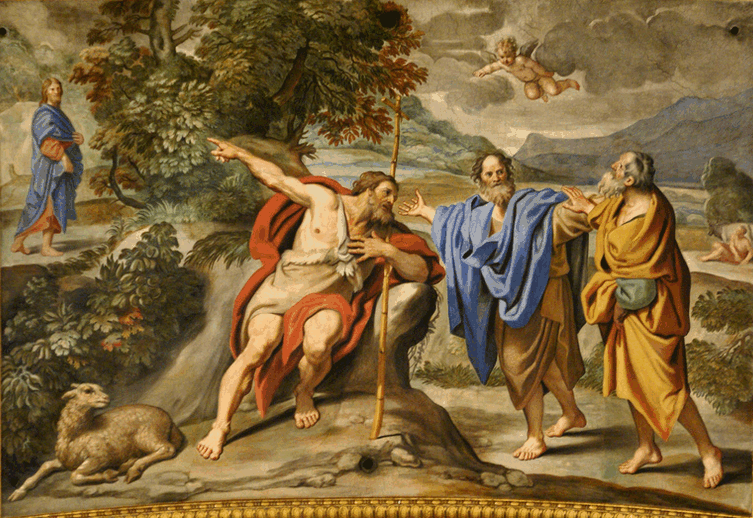Month: January 2017
-

Church in the Wisdom of God (1 Corinthians 1:18-31)
Bethlehem Lutheran Church, Lebanon, OR Fourth Sunday after the Epiphany + January 29, 2017 Text: 1 Corinthians 1:18-31 We know a lot of stuff about the Bible, and about the Gospel, right? We know God, or we’d like to think. Maybe a better way to put it is in the words we just confessed in…
-
Bringing Us Out of Darkness into His Light (Isaiah 9:1-4)
Bethlehem Lutheran Church, Lebanon, OR Third Sunday after the Epiphany + January 22, 2017 Text: Isaiah 9:1-4 One of the first works of God was to separate the light from the darkness, and making a distinction called Day and Night.[1] The difference between light and dark is a matter of contrast. For our life, we…
-

Pointing to the Lamb of God (John 1:29-42)
Bethlehem Lutheran Church, Lebanon, OR Second Sunday after the Epiphany + January 15, 2017 Text: John 1:29-42a Jack Friday in Dragnet was famous for saying, “Just the facts, ma’am.” Whenever they would interview a witness, it undoubtedly happened that they would trail off into personal experiences and opinions about the suspect. But what is…
-

Baptized into Grace (Matt. 3:13-17)
Bethlehem Lutheran Church, Lebanon, OR Baptism of Our Lord + January 8, 2017 Text: Matthew 3:13-17 If you follow the news, it can be overwhelming—shootings, bombings, betrayals of trust, and political unrest (just to name a few). One common theme in all of these is the thirst for justice. We want to see ISIS destroyed,…
-

Funeral of Dale Bruce Gray (Isaiah 40:27-31)
Bethlehem Lutheran Church, Lebanon, OR Funeral of Dale “Bruce” Gray – January 5, 2017 Text: Isaiah 40:27-31 Dale Bruce Gray had a long and rich life of 87 years. He had a long life of marriage to Alice, married for 65 years and 5 days. Bruce had a long life of faith, baptized and…
-

On the Eighth Day of Christmas, My True Love Gave Me a Name Above All Names (Luke 2:21)
Bethlehem Lutheran Church, Lebanon, OR Circumcision and Name of Jesus + January 1, 2017 Text: Luke 2:21 A blessed Eighth Day of Christmas to you! That’s probably not what you’re expecting to hear on January 1. But it’s true. Today we celebrate the eighth day after Mary gave birth to her firstborn son and laid…